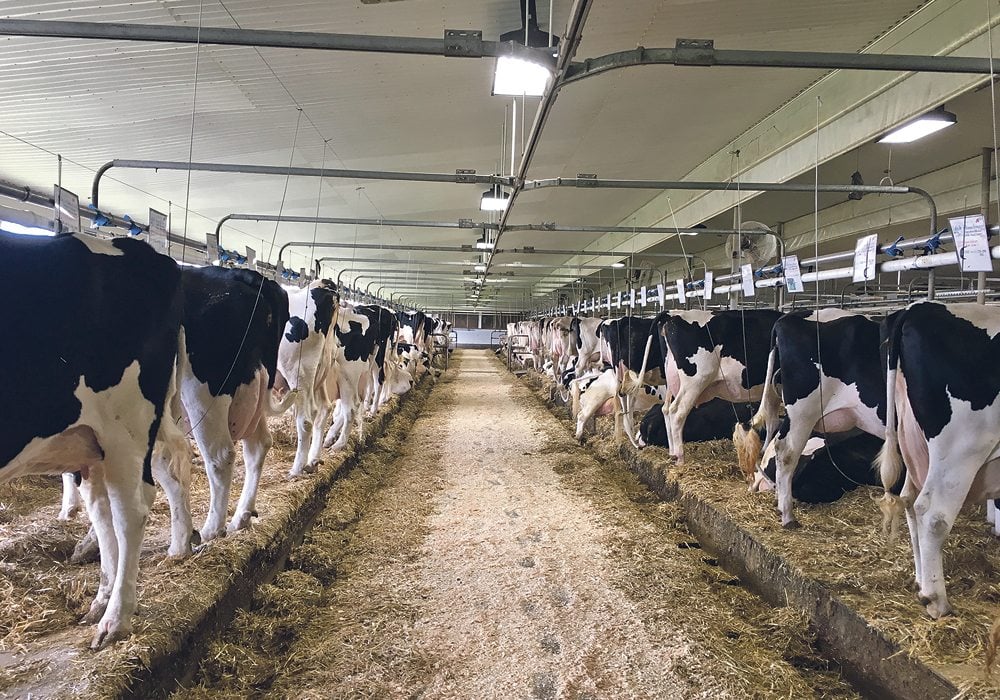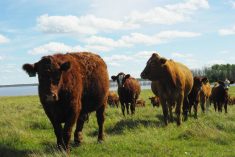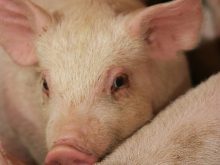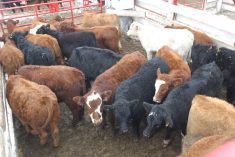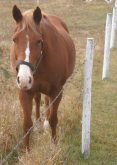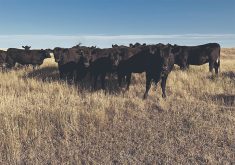EMBRUN, Ont. — Ferme Gillette is a family-run dairy that has achieved international recognition with champion Holsteins and record-producing cows.
Family is at the core of the 600-cow operation.
“We have been fortunate enough that the whole family has been part of this and we can keep growing with the family,” said Eric Patenaude, grandson of founder Gilles Patenaude.
“One of our strengths is that we can all work together,” he told a recent tour group at the farm at Embrun, Ont.
The name Ferme Gillette is a combination of the names of Gilles and Lorette Patenaude. The original family operation was established in 1878 by Gilles’s grandfather. Gilles became a dentist but also wanted to farm and in 1960 he switched from beef cows to Holsteins.
Read Also

Beef check-off collection system aligns across the country
A single and aligned check-off collection system based on where producers live makes the system equal said Chad Ross, Saskatchewan Cattle Association chair.
The farm is spread over three sites and is run by the four brothers, Marc, Louis, Vince and Mathieu Patenaude, and three cousins.
The family is quick to adopt new technology and initiatives. It recently signed on to the Dairy Farmers of Canada’s food safety and animal welfare quality assurance program, ProAction.
“I was pretty happy when they brought that in because I think it is going to give us an edge going toward the future. It shows the general public the high standards we have here in Canada to compete in the future,” said Eric Patenaude.
The cows average 44 kilograms each of milk per day. High-producing cows need special care so cow comfort is a critical control point for Ferme Gillette.
“We have done everything we can here to make the cow happy as possible. The happier she is, the more milk she’ll produce,” he said.
There have been major investments in new milking systems, ventilation and bedding.
Technology like small orange ear tags is used to help determine when a cow is going into heat. The Cow Manager system from Select Sires uses an embedded microchip to detect head movements, cow activity, eating time and rumination, as well as body temperature. Any changes appear on the farm computer.
“You cannot always detect heat naturally so every morning I sit at my computer in the office and I see exactly which cattle need to be bred and which cows are sick,” he said.
Under new ProAction guidelines, the farm has stopped docking cows’ tails, which was done to keep them cleaner.
They have also changed how they house calves and while the young ones live in small stalls, they have plenty of room, they can see who is next door and touch noses. Calves are eventually sorted into pairs so they have a buddy.
“If you have one calf that is the odd man out, it doesn’t do so well, so you have to put them in pairs,” Eric said.
New breeding plans are looking for a polled gene so they can eliminate dehorning and with a DNA test they are seeking cows that carry the A2 beta casein protein in their milk. It can help people with lactose intolerance digest milk with the addition of an enzyme supplement. It is not for those with dairy allergies.
The dairy bull calves and heifers that may not make it as milking cows receive a special tag so they can be diverted to the beef market.
In addition, they have added an Angus component.
They used sexed semen recently to get more females but there are still some cattle destined for beef.
“The herd is growing. The ones we feel we don’t want to keep genetics from, then we will breed them with Angus semen or Angus embryos,” he said.
Louis Patenaude plans to develop a market for these crossbreeds in the beef market.
“There is an advantage for the cow with Angus. Calving is a lot easier and I have never had to pull an Angus calf,” Eric said.
The farm keeps extensive records.
A special cow called Gillette Emperor Smurf EX-91 earned a place in the Guinness Book of World Records as the most prolific milk producer in the history of dairy cows. Smurf produced 216,891 kilograms in its lifetime, the equivalent of about one million glasses of milk.
The cow lived to be 18 years old and two years ago they allowed it to die naturally on the farm.
In addition, the farm has had an extensive show career and received honours such as Master Breeder, All Canadian awards, Class Extra Sires, Canadian and international cow of the year and record setting sales.




